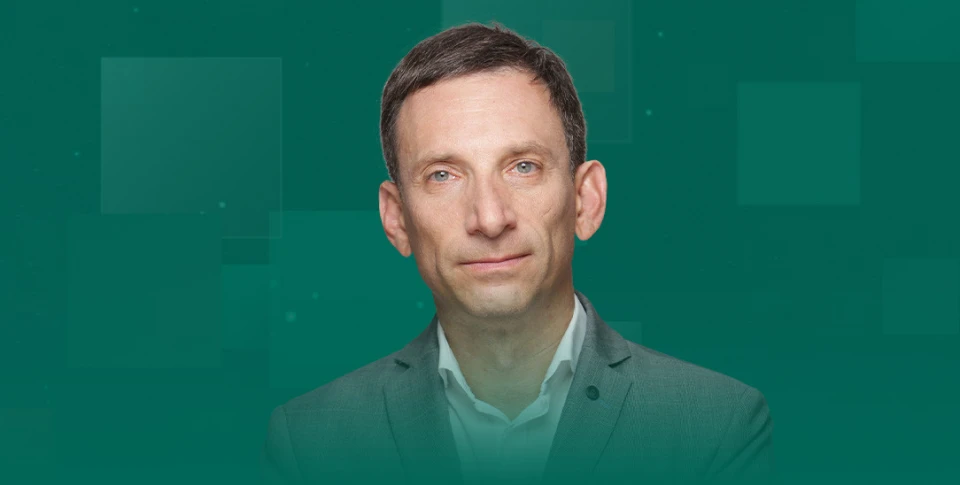
Zelenskyy open to talks with Putin, but prospects remain dim. Vitaly Portnikov's column
In an interview with British journalist Piers Morgan, Volodymyr Zelenskyy did not rule out negotiations with Putin if necessary to end the Russian-Ukrainian war
This statement is likely aimed not at Putin but at U.S. President Donald Trump, who is known for constantly testing which of the two leaders - Zelenskyy or Putin - is more willing to follow his peace plan. A plan whose details remain unknown and are unlikely to be revealed in the coming days.
As is well known, Putin has no desire to engage in talks with the Ukrainian president, whom he considers illegitimate. Moreover, he has stated that if Russian-Ukrainian negotiations were to take place - though the Kremlin's demands for such talks resemble Ukraine’s capitulation - he would send some of his representatives instead. However, according to Putin, Zelenskyy cannot sign any agreements resulting from these negotiations, as he is an "illegitimate" leader; instead, this should be done by the Speaker of the Verkhovna Rada.
“Putin, who for some unclear reason believes he can decide who is legitimate in Ukraine, also demands the repeal of the Ukrainian president’s decree that officially rules out negotiations with him as Russia’s leader. However, from Putin’s perspective, this decree should not be revoked by Zelenskyy but by the Speaker of the Verkhovna Rada of Ukraine.”
Given Putin’s stance, negotiations between him and the Ukrainian president seem unrealistic. However, Zelenskyy’s statement is likely intended to assure U.S. President Donald Trump - if he is interested - that Ukraine is willing to consider his vision of the peace process. Zelenskyy also stated that while Ukrainians understand they may not be able to regain control over all territories occupied by Russia, they will never legally recognize them as an integral part of Russia.
Russia has a completely different vision of the situation, insisting that Ukraine must not only recognize Donetsk, Luhansk, Kherson, Zaporizhzhia, and Crimea as parts of the Russian Federation but also withdraw its forces from the areas in these regions still under Ukrainian control. It remains unclear whether Moscow would see as a concession the fact that Ukraine is not planning to retake these territories by force and would thus agree to a ceasefire along the current front line.
So far, the Russian leadership has made no statements indicating the Kremlin’s willingness to accept such a scenario. Perhaps if Russia’s offensive in Ukraine were halted, Moscow would take this possibility more seriously. However, it is still too early to consider this scenario realistic. Putin’s stance may be influenced by Donald Trump’s position if direct contacts between the two leaders take place and yield tangible results.
“In the interview, Zelenskyy also stated that he is prepared for a scenario in which Ukraine does not become a NATO member. However, he emphasized that in this case, everything possible must be done to ensure Ukraine has security guarantees. By these guarantees, Zelenskyy primarily means the return of nuclear weapons to Ukraine.”
It is unlikely that such a proposal would be seen as realistic by Western governments. While the idea of being open to negotiations with Putin might be viewed positively by Donald Trump and his team, the suggestion of returning nuclear weapons to Ukraine could alarm the U.S. president and his inner circle.
On the other hand, when Zelenskyy talks about the return of nuclear weapons to Ukraine, he may be raising the stakes in terms of Ukraine's Euro-Atlantic integration. As is well known, Donald Trump has repeatedly acknowledged Russia's concerns about Ukraine’s desire to join NATO. In this context, Russia’s concern about Ukraine becoming a nuclear state should likely be even more understandable to the U.S. president.
This is unlikely the path Donald Trump would want to take when discussing the resolution of the Russian-Ukrainian conflict. Ultimately, this suggests that neither Zelenskyy nor the U.S. administration has a concrete plan to end the war. We don’t even know if such a plan will exist in the foreseeable future. Therefore, the Ukrainian president’s interview seems like a mix of, on one hand, a willingness to align with the U.S. president’s peace approach, and on the other, an effort to raise the stakes in case Donald Trump unexpectedly makes significant concessions to Russian leader Vladimir Putin.
“What we are witnessing in terms of some ways to resolve the Russian-Ukrainian conflict can be characterized by a simple word: chaos, which, in principle, will characterize everything that has been happening in the world since the inauguration of Donald Trump.”
This chaos may not seem so obvious if U.S. diplomacy begins taking practical steps to present the plans for ending the war that are expected to exist in the White House in the future.
Already in February, Trump’s representative for resolving the Russian-Ukrainian conflict, Keith Kellogg, is set to present proposals from the U.S. administration at the Munich Security Conference. We also anticipate contacts between Donald Trump, Volodymyr Zelenskyy, and Vladimir Putin.
However, looking at the results of the meeting between the U.S. president and the Israeli prime minister, from which many expected a realistic idea for ending the conflict in the Middle East, we can now say that this meeting did not reduce but only intensified the chaos in the region. This is true both in terms of Trump’s own statements and the expectations of what might happen in the near future. I am almost certain that further developments regarding the end of the Russian-Ukrainian war, if Donald Trump puts forward any of his own specific proposals, could indeed lead not to de-escalation but to an intensification of the chaotic situation in our part of the world.
About the author. Vitaly Portnikov, journalist, Shevchenko National Prize winner.
The editors do not always share the opinions expressed by the blog authors.
- News













































